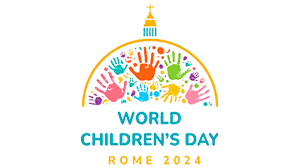SUDAN/SOUTH SUDAN: On International Day of the Disappeared, Council of Churches Appeal for Assistance to Families of Missing Persons

Sr. Jecinter Antoinette Okoth, FSSA
On International Day of the Disappeared marked annually on August 30, members of South Sudan Council of Churches (SSCC) have emphasized the need of assisting families of missing persons highlighting various ways on how the Church, government and other actors can help these families find relief.
Members of SSCC an Ecumenical body comprising of seven member Churches and associate Churches in South Sudan noted in their message dated Monday, August 29, that, “Behind every missing person, there are countless more people suffering from the anguish and uncertainty of not knowing the fate and whereabouts of their loved ones.”
“Along with the terrible pain that only grows as years go by without answers, they often face numerous psycho-social, administrative, legal, and economic difficulties,” representatives of the ecumenical body underscored.
Based on these concerns, the Church officials called on all stakeholders including the youths, civil society organizations, humanitarian organizations such as Red Cross, and community leaders “to assist families of missing persons with their economic, legal, and administrative problems, mental health-related needs, their plight for recognition, and create awareness of their suffering.”
They asked communities, societies, and institutions of South Sudan to acknowledge the suffering of families of missing persons and stand by them so that the families of missing persons can “know that they are not alone, and their loved ones are not forgotten. Hence Families should not be stigmatized.”
In their Monday message, representatives from various Churches including Archbishop Stephen Ameyu Mulla of the Catholic Archdiocese of Juba, disclosed that disappearances of people in South Sudan, affect individuals, families, communities, and society at large.
“Decades of armed conflict, violence, arbitrary deprivation of liberty, lack of dignified management of the dead, seasonal natural disasters, and migration lead to persons becoming missing,” SSCC members highlighted some reasons why people disappear in the society adding that, “The exact scope of the issue of disappearances remains unknown, yet painfully large.”
Additionally, they underscored that the never-ending uncertainty, expectancy, and pain of families of missing persons “pervade every aspect of their lives,” hence “not knowing what happened to their loved ones and being unable to give them a dignified burial remains an open wound, leaving little possibility for families and communities to recover and move on.”
Addressing the government on ways to support these vulnerable families, the Church officials asked government “to help clarify the fate of missing persons through possible means” knowing that, “Until the families have an answer, they wait for their loved ones, and their suffering will go on (since) time does not heal but answers do.”
They further called on the government to recognize the plight of families of missing persons in the country and “provide them with care and assistance, legal and economic support, health and educational services, and sustainable and dignified livelihood opportunities.”
In this case, therefore, SSCC members emphasized adoption of “comprehensive legislation for missing persons and their families.”
Since Religious faiths are guides for families to cope with their suffering related to the disappearance of their loved ones the Church official said, “Religion plays an integral role in supporting families of missing persons to cope with suffering and despair.”
“All churches and God-fearing people to stand in solidarity with and address families of missing persons and their suffering in their masses and prayers, as many families of missing persons find relief in their religion,” reads part of the message as it continues, “All Churches and Church Leaders to raise awareness of the rights and needs of families of missing persons and prevent any stigmatization they face.”
Furthermore, representatives from various Churches urged Church leaders not to leave Children alone to cope with the pain of their missing parents but to offer care by assisting them with “social inclusion, access to education, and relief for their suffering.”
International Day of the Disappeared aims to raise awareness of the issue of disappearances, to remember missing people and express solidarity with their families.


